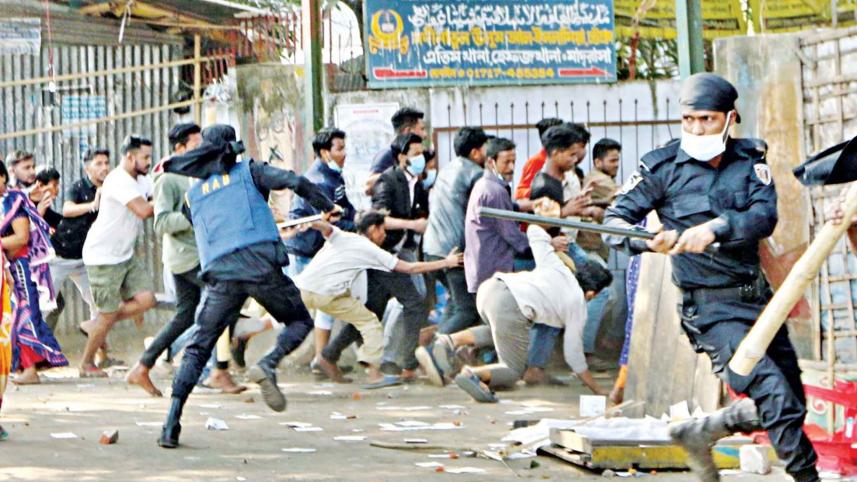CCC polls end on a sour note

A mayor has won the Chattogram City Corporation polls by an apparent landslide but the incidents of violence that have taken the life of a young man and caused injury to more than a hundred others, along with voter intimidation, capture of scores of polling centres and false voting, make us question: was it worth it? Does election automatically mean that such incidents will be a given? Why can't violence and irregularities be pre-emptively avoided by those in charge of security and fairness in ballot casting, namely the law enforcers and the Election Commission?
This newspaper sent a team of eight reporters and photojournalists to cover the CCC elections, and the reports and images they brought back give a glimpse of how violent, chaotic and distressing the election scenario was. It is no surprise that the voter turnout was so low—a mere 22.52 percent.
The BNP mayoral candidate has alleged that the police and members of local administration were biased and acted like ruling party activists, and that they were the main rivals. Can we completely dismiss such allegations as the usual complaints of a sore loser when this candidate got only one vote in several polling centres, which is hardly a credible occurrence?
The ritualistic refrain by the Election Commission—that "apart from stray incidents, the CCC election was held peacefully in a free and fair manner"—sounds hollow and is an insult to people's intelligence. How does the fact that one person was killed and more than a hundred were injured (including women) fall under "stray incidents"? What's more disturbing is that the young man was killed during clashes between supporters of candidates of the same party: one an AL-backed councillor candidate and the other an AL rebel candidate. It indicates intense discord within the ruling party that has gone out of control of the party high-ups leading to violence. In fact, the violence started soon after the campaign began with two Awami League men being killed in clashes between the party-supported and rebel candidates and many injured.
It is a conundrum why, despite the presence of 15,000 members of law enforcement and teams of executive and judicial magistrates to maintain law and order, they could not prevent the violent clashes between supporters of opposing candidates of AL or those between supporters of AL and BNP candidates. Why were several groups of people wearing badges of ruling party candidates allowed to stand in front of polling centres and enquire about the identity of those suspected of being loyal to BNP candidates? Why were the polling agents of the BNP-nominated mayoral candidate driven out of almost all the 45 polling centres visited by this paper's correspondents?
These are questions that keep cropping up after each election and are always dismissed by the Election Commission and ignored by the government. Unless these issues, including voter intimidation, throwing out of polling agents from a centre, forcefully casting a ballot of a voter and failure of the law enforcers to prevent violence, are addressed, voter turnout will continue to fall making elections a futile and meaningless exercise.



 For all latest news, follow The Daily Star's Google News channel.
For all latest news, follow The Daily Star's Google News channel.
Comments